The Ultimate Self-Check Guide Before You Start a Clothing Brand (updated for 2025)
This Guide about how to start a clothing brand
...walks you—step by step—through every decision a founder must make before launching a clothing brand. It expands each self-check section, adds concrete frameworks, calculators, production tables, and mini-guides.
The first step to start a clothing brand ... is to watch that video ! Seriously,watch it !
Table of Contents
- Brand Identity: Define your positioning, promise, and persona
- Product & Design: Build a line plan, specs, and differentiation
- Manufacturing & Production: Blanks vs cut-and-sew, MOQs, sampling, contracts
- Market & Competition: Validate demand and map your niche
- Business & Logistics: Budgets, pricing, cash flow, shipping/returns
- Legal & Risk: Trademarks, labeling, insurance, compliance
- Marketing & Community: Channels, content engine, launch plan
- Sustainability & Ethics: Materials, certifications, transparency
- Operations & Team: Roles, tools stack, fulfillment models
- Financial Planning & Growth: Break-even, funding, scale paths
- Visuals & Tables: Local vs overseas, certifications, sample budgets
- Expanded FAQs: Full mini-guides to common founder questions
1) Brand Identity: Define Your Positioning, Promise, and Persona
A brand that can't explain itself in one sentence struggles to sell. Identity is your north star for every later decision (fabrics, pricing, marketing voice).
1.1 Positioning Statement (Template)
For [ideal customer],
who [primary goal or problem],
our brand is a [category]
that [unique value or outcome].
Unlike [key competitor/approach],
we [differentiator proof].
Example: For disciplined creatives who want premium everyday streetwear, our brand is a modern basics label that blends heavyweight fabrics with performance trims. Unlike trend-chasing drops, we maintain core silhouettes year-round and guarantee re-orders for consistency.
1.2 Brand Personality Grid (Choose 3–4 Traits)
Minimalist / Bold / Technical / Playful / Rugged / Luxe / Sustainable / Athletic / Artsy / Heritage
1.3 Emotional Outcome
How do you want people to feel wearing your product? Confident? Focused? Calm? Aspirational? Put this in writing; use it when reviewing mockups and product samples.
1.4 ICP Snapshot (Ideal Customer Profile)
Age range, key cities/regions; Income and willingness to pay; Style references (brands worn now); Media diet; Buying triggers. Checklist: If a design, colorway, or caption doesn't serve your positioning, it's a distraction.
2) Product & Design: Build a Line Plan, Specs, and Differentiation
Start lean with a tight line that you can actually fund, fulfill, and restock.
2.1 Line Plan (First 90 Days)
- 1 hero: e.g., heavyweight hoodie (target for customize hoodies campaigns)
- 1–2 supporting pieces: oversized tee (e.g., oversized acid wash t-shirts), jogger or short
- 1 accessory: beanie, cap, or bag to lift AOV
2.2 Differentiation Levers - Enhanced
- Fabric: Understanding GSM (grams per square meter) is crucial for quality perception. Learn more about fabric selection in our guide to **Fabric Weight and Quality**.
- Fit: boxy/oversized, cropped, tapered, tall/short options
- Decoration: screen print, puff, embroidery, chenille, applique, DTG/DTF
- Wash/Dye: acid wash, garment dye, enzyme wash, pigment dye
- Trims: custom pulls, metal eyelets, woven labels, branded neck tape
2.3 Tech Pack & Spec Essentials (even for blank customization)
Flat sketches with front/back views; Bill of materials (BOM); Measurements by size (POMs); Color standards (Pantone); Print/emb placement; Care/labeling instructions.
2.4 Sample Workflow
Proto sample → fit approval; Sales sample → marketing assets; Pre-production (PP) sample → final QC baseline; TOP (Top of Production) → first units off line. Tip: Even if you start with blanks to customize hoodies, request a pre-print sample to check fabric stretch/recovery and print handfeel.
2.5 Digital Prototyping & Fit Technology
Modern clothing brands are leveraging digital tools to reduce costs and improve accuracy. 3D design software like CLO3D allows for virtual sampling, dramatically reducing physical sample costs and iteration time. Virtual fitting apps and AR try-on technology are also reducing return rates by up to 40%.
Benefits of Digital Prototyping:
- Reduce sample costs by 60-80%
- Cut development time from weeks to days
- Visualize fabric drape and movement accurately
3) Manufacturing & Production: Blanks vs Cut-and-Sew, MOQs, Sampling, Contracts
Your choice of custom clothing manufacturer and model (blanks vs cut-and-sew) defines risk, cost, and speed.
3.1 Decision Tree
Need unique silhouette? → Cut-and-sew. OK with classic silhouette + decoration? → Premium blanks now. Budget under €5–10k? → Blanks or white-label program to launch faster.
3.2 Local vs Overseas (See full table in Section 11)
Local (e.g., Portugal/EU): faster, low MOQs, better QC communication. At Athleisure Basics, we provide direct access to Portuguese manufacturing partners with a local point of contact to eliminate communication barriers and expedite the entire process. Overseas (e.g., Asia): lower unit cost, but higher MOQs and longer lead times. For brands concerned about low MOQs, our guide provides detailed strategies for starting small and scaling effectively.
3.3 MOQ Strategy
Start at the manufacturer's MOQ for the hero SKU; Consolidate colors; Use size curves based on early list signups or polls.
3.4 Sampling Timeline (Indicative) - Enhanced
Tech pack → proto: 1–2 weeks; Revisions → sales sample: +1–2 weeks; PP sample after PO: +1 week (often expedited with local Portuguese partners); Bulk production: 4–8 weeks; Freight: local 1–5 days; overseas 2–5 weeks by sea, 5–10 days by air.
3.5 Quality Control (QC)
Use AQL (Acceptable Quality Limit) tables (common AQL 2.5). Inspect PP sample + in-line + final. Establish measurement tolerances and print color delta (ΔE targets) beforehand.
3.6 Contract Must-Haves
Product scope + tolerances; MOQ and pricing tiers; Lead times; Payment terms (e.g., 30/70; LC; Escrow); IP and tooling ownership; QC protocol; Force majeure and exit clauses.
4) Market & Competition: Validate Demand and Map Your Niche
You're not just making garments—you're solving a style and identity job for a specific buyer.
4.1 Quick Validation
Landing page waitlist; 20–30 interviews with ideal buyers; Price-sensitivity test. "Shadow searches" using real phrases buyers type: "customize hoodies near me", "custom clothing manufacturer Europe", "oversized acid wash t shirts", "custumize hooides".
4.2 Competitive Map
Identify white space (e.g., heavy GSM + eco dye + guaranteed restock).
4.3 Trend Filters
Avoid chasing micro-trends for core program; Tie **"acid wash"** to a durable brand story (e.g., 90s athletics, coastal fades).
5) Business & Logistics: Budgets, Pricing, Cash Flow, Shipping/Returns
5.1 Startup Budget (Indicative, lean DTC)
Product development + samples: €1,000–€3,000; Initial inventory (1–3 SKUs): €4,000–€12,000; Brand + visuals: €800–€2,500; Site + tools: €200–€800; Content + launch ads: €1,000–€5,000; Cushion (unexpected): 10–15%.
5.2 Pricing Ladder (example hoodie)
COGS (unit): fabric + cut/sew + trims + print + labels + packaging + freight + duty. Wholesale price: ~2× COGS. DTC price: ~2.5–3.5× COGS, aligned to perceived value and competitors.
5.3 Break-Even — Step-by-Step (Worked Example)
Fixed total = €3,000. Contribution per unit = €50.00. Break-even units per month: €3,000 ÷ €50 = **60 units**. Add safety buffer: plan for 1.2× (72 units/month).
5.4 Cash-Flow Tips
Stagger POs; Pre-orders only if you can hit promised dates; Negotiate deposits tied to sampling approvals.
5.5 Shipping & Returns
Offer simple, transparent rates; Publish fit guides + model measures to reduce returns; Re-sellable returns only.
6) Legal & Risk: Trademarks, Labeling, Insurance, Compliance
Trademarks & Domains; Labeling & Safety; Contracts & Insurance (Liability, cargo/stock).
7) Marketing & Community: Channels, Content Engine, Launch Plan
A consistent content engine beats one-off viral hopes.
7.1 Channel Priorities
TikTok/IG Reels for reach; Email/SMS for conversion; Community for loyalty.
7.2 Content Pillars (example)
Product education (fabric GSM, wash methods); Styling (how to wear oversized fits); Brand story (process, factory, ethics); Social proof (UGC, reviews).
7.3 Launch Plan (30-Day Sprint)
Tease hero piece; behind-the-scenes acid-wash demo; pricing reveal; Launch Day email/SMS; post-launch restock poll.
8) Sustainability & Ethics: Materials, Certifications, Transparency
8.1 Materials & Processes
Organic cotton for tees/hoodies; recycled poly for performance; Low-impact dyes; Responsible packaging.
8.2 Certifications (see table in Section 11) - Enhanced
OEKO-TEX®: harmful substances tested. For a complete breakdown of what this means for your brand, see our guide to **Apparel Certifications Explained**. Other key certifications include GOTS, Fair Trade, and BSCI/WRAP.
8.3 Transparency
Share what you can (country of origin, factory region); Be honest about constraints.
9) Operations & Team: Roles, Tools Stack, Fulfillment Models
Minimal Team (Founder + Freelancers); Tools Stack (Shopify, Accounting, Project Management); Fulfillment Models (Self-fulfillment to start, 3PL as volumes scale).
10) Financial Planning & Growth: Break-Even, Funding, Scale Paths
Growth Levers (New colors, wholesale capsules, collabs); Funding Options (Self-fund, Revenue-based financing); KPI Dashboard (Traffic, conversion rate, AOV, Return rate, Inventory turnover).
For brands interested in unique product offerings and capitalizing on vintage-inspired trends, consider browsing stylish acid wash shirts to upgrade your look.
11) Visuals & Tables
11.1 Local vs Overseas Manufacturing Summary - Enhanced
| Factor | Local (e.g., Portugal/EU) | Overseas (e.g., Asia) |
|---|---|---|
| Typical MOQ | Lower (≈70–300/style/color) | Higher (≈200–1,000/style/color) |
| Lead Time | Shorter; faster comms | Longer; time zones/logistics |
| Unit Cost | Higher | Lower |
| Value-Add | Access to Premium EU Fabrics & specialized cotton/fleece | Limited premium fabric options |
| Best For | Premium quality, agile drops | Cost-sensitive, high volume |
11.2 Sustainability & Compliance Snapshot
| Certification | Covers | Notes |
|---|---|---|
| OEKO-TEX® Standard 100 | Harmful substances testing | Applies to fabrics, trims, prints |
| GOTS | Organic fiber + chain of custody | Strong claim for organic cotton lines |
| Fair Trade | Workers' rights + fair pay | Good for messaging and ethics |
| BSCI / WRAP | Social compliance audits | Many apparel factories carry these |
| ISO 9001 / 14001 | Process-level confidence | Quality / environmental systems |
11.3 Sample Startup Budget (Lean)
| Category | Range (€) |
|---|---|
| Product Dev + Samples | 1,000–3,000 |
| Initial Inventory (1–3 SKUs) | 4,000–12,000 |
| Branding + Visuals | 800–2,500 |
| Site + Apps | 200–800 |
| Content + Launch Ads | 1,000–5,000 |
| Cushion (10–15%). Learn more about sustainable athleisure clothing suppliers in Portugal. | 700–3,500 |
| Total | 7,700–26,800 |
11.4 Production Timeline (Single Style)
| Stage | Duration |
|---|---|
| Tech Pack Final | Week 0 |
| Proto Sample | Week 1–2 |
| Sales Sample | Week 3–4 |
| PO + PP Sample | Week 5 |
| Bulk Production. Learn about the essentials of creating a great clothing tech pack for fashion startups. | Week 6–13 |
| Final QC + Pack | Week 14 |
| Freight (EU ground) | +1–5 days |
12) Expanded FAQs — Full Mini-Guides
This section provides full mini-guides to common founder questions.
FAQ 1: How much does it cost to start a clothing brand?
Short answer: €5,000–€25,000 for a lean DTC launch with 1–3 SKUs. Mini-guide: Decide product scope; Price out COGS; Set initial MOQ by color/size; Reserve 10–15% for surprises; Plan for content and ads.
FAQ 2: Can I start with just hoodies or tees?
Absolutely. Many founders launch with a single hero, usually a heavyweight hoodie you can **customize hoodies** easily with screen print or embroidery. Mini-guide: Choose fabric and fit first; Approve print/emb handfeel; Launch 1–2 colors and scale on demand; Collect size feedback.
FAQ 3: Local vs overseas manufacturing—what should I choose?
Mini-guide: If you need agility, lower MOQs, and close QC → Local/EU. If you need lowest cost and can fund bigger runs → Overseas. Hybrid path: launch locally, scale volume SKUs overseas once proven.
FAQ 4: How do I negotiate MOQs?
Mini-guide: Consolidate colors; Offer to pay slightly more per unit for a lower MOQ; Present a roadmap; Ask about white-label lines.
FAQ 5: How do I calculate break-even and set prices?
See Section 5.3 for math. Mini-guide: Compute COGS in detail; Add handling and payment fees; Choose margin targets by channel; Run scenarios.
FAQ 6: What's the fastest way to "customize hoodies" professionally?
Mini-guide: Start with premium blanks; Lock Pantone targets; Get strike-offs; Approve PP sample; Use consistent placements; Create a re-order kit.
FAQ 7: How do I make "oversized acid wash t-shirts" right?
Mini-guide: Choose heavy jersey (e.g., 240–260 GSM); Request wash tests for shrink and color rub; Expect variation; Photograph multiple pieces to set expectations.
FAQ 8: How do I choose a custom clothing manufacturer?
Mini-guide: Collect references; Ask for minimums, lead times, QC process, certifications; Send a starter brief; Start with one style; Pay fairly and on time to build priority.
FAQ 9: How do I manage quality with limited budget?
Mini-guide: Fewer SKUs, better QC; Pre-production checklist; In-line checks at 20–30% completion; Final AQL inspection.
FAQ 10: How should I handle shipping and returns?
Mini-guide: Offer tracked shipping; Publish fit/measurement charts; Decide on restocking fees; Automate returns portal.
FAQ 11: Everyone types differently—should I include search typos like "custumize hooides" or "oversizd acid wash t shirts"?
Mini-guide: Do not spam typos. Mention common variants sparingly (as we did here) in natural contexts or FAQ sections. Focus on correct phrases (customize hoodies, oversized acid wash t-shirts, custom clothing manufacturer) for quality and trust.
Action Checklist (Print This)
- Write your one-sentence positioning;
- Define 3–4 brand personality traits;
- Draft line plan;
- Create tech packs;
- Shortlist 3 manufacturers;
- Validate pricing and demand;
- Build startup budget;
- Prepare contracts;
- Create 30-day launch content calendar;
- Decide fulfillment and returns policy;
- Choose at least one sustainability lever you can prove.
Closing Note
A successful fashion launch is a math-supported creative act. Get the story right, pick a hero product you can actually deliver, and align with a custom clothing manufacturer who matches your quality, MOQ, and timeline needs. Whether your launch centers on **customize hoodies** campaigns or a tight capsule of **oversized acid wash t-shirts**, the playbook above lets you execute with clarity—and scale with confidence.
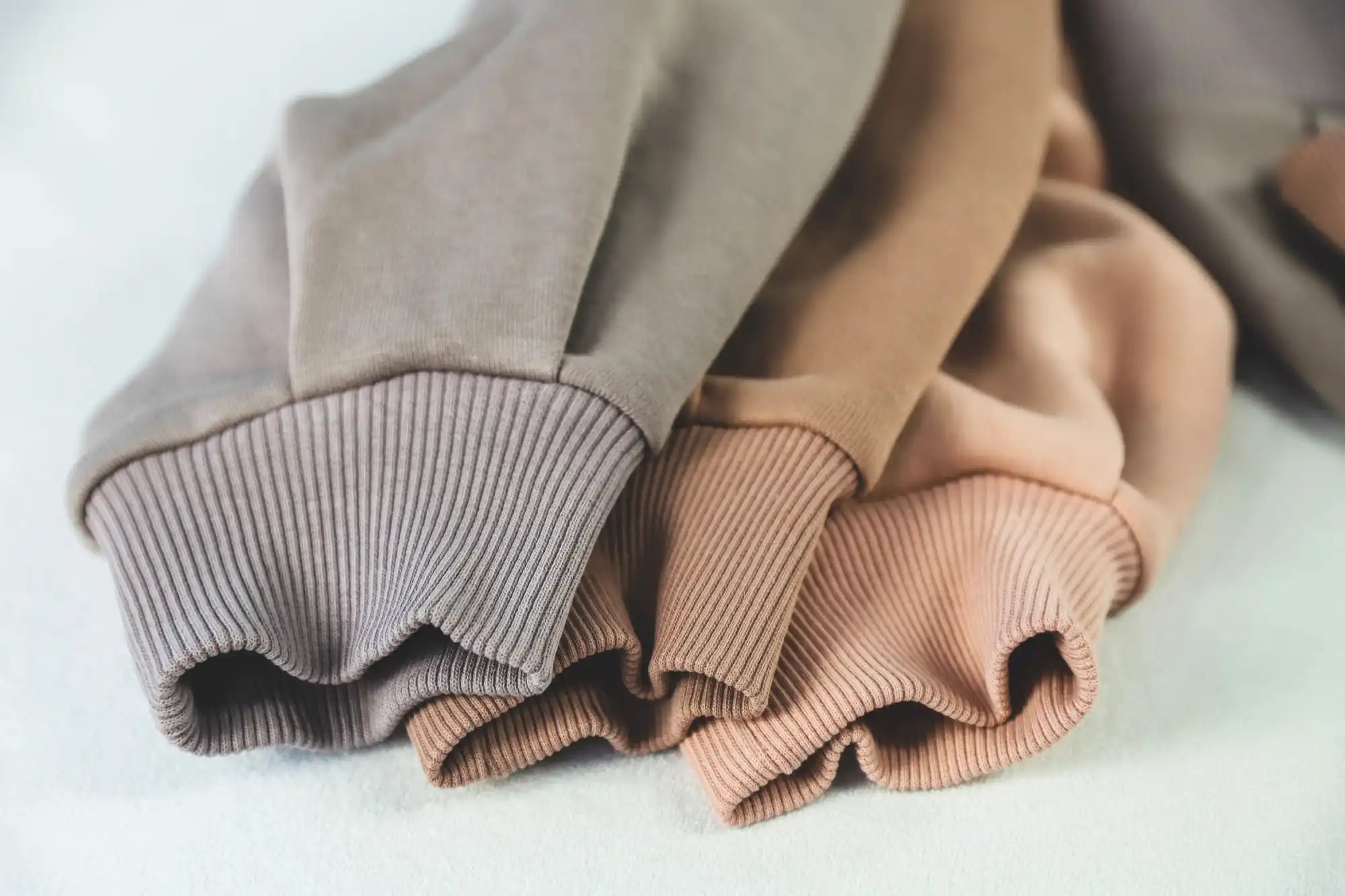
Materials & Fabrics for Clothing Production
Explore cotton, French terry, jersey, fleece, and sustainable blends used in premium apparel manufacturing.
Explore Premium Apparel Fabrics Guide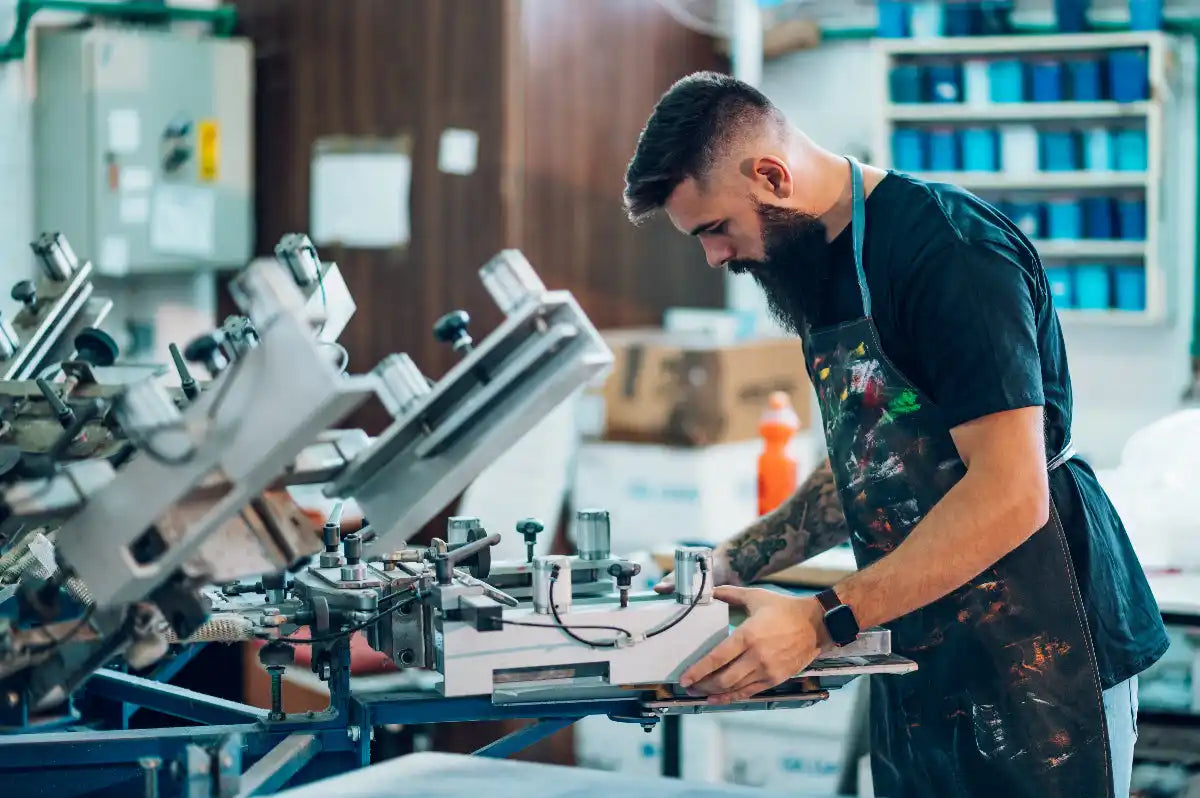
Printing Techniques for Apparel Production
Screen printing, embroidery, puff prints, and digital methods for custom clothing manufacturing.
Explore Custom Apparel Printing Techniques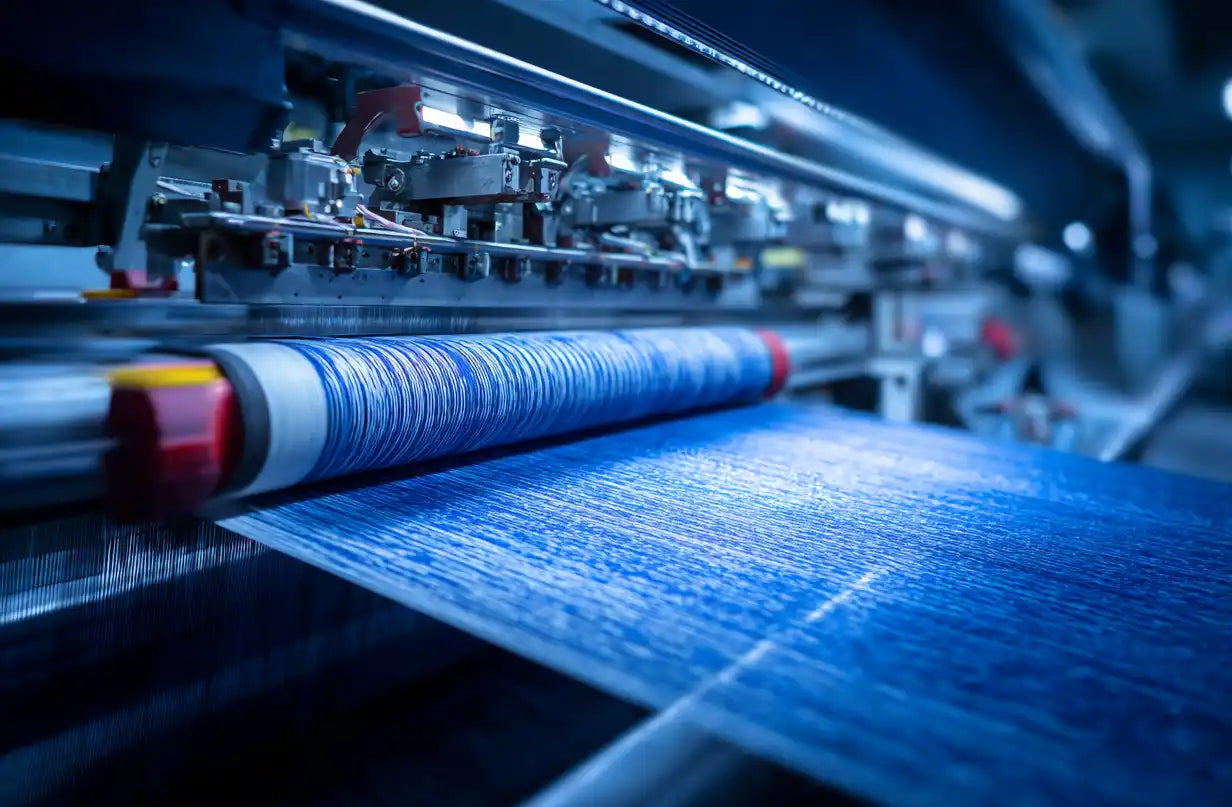
Dyeing Techniques in Clothing Manufacturing
Garment dye, pigment, acid wash, and stone wash finishes that create unique apparel designs.
Compare Apparel Finishing Techniques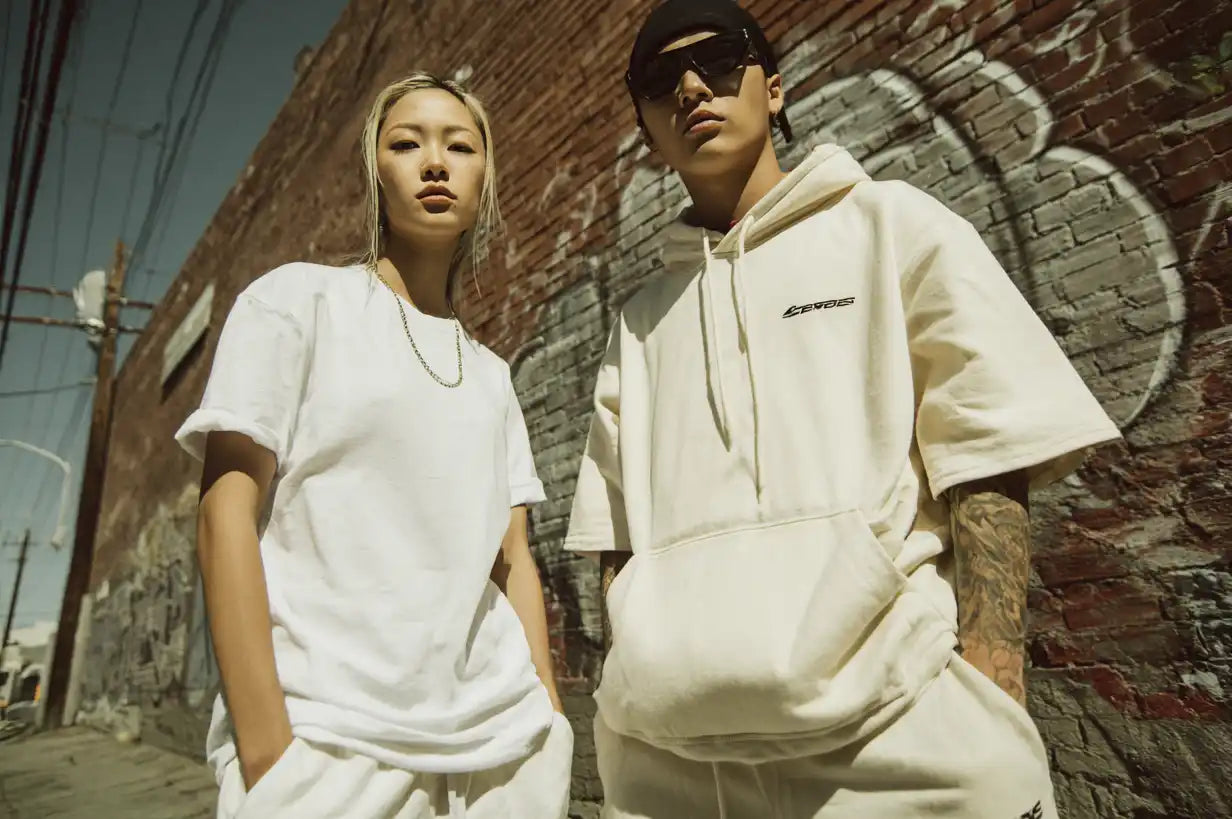
Popular Clothing Items for Custom Apparel
Hoodies, joggers, t-shirts, leggings, and biker shorts — essentials for every apparel collection.
Explore Popular Custom Clothing Items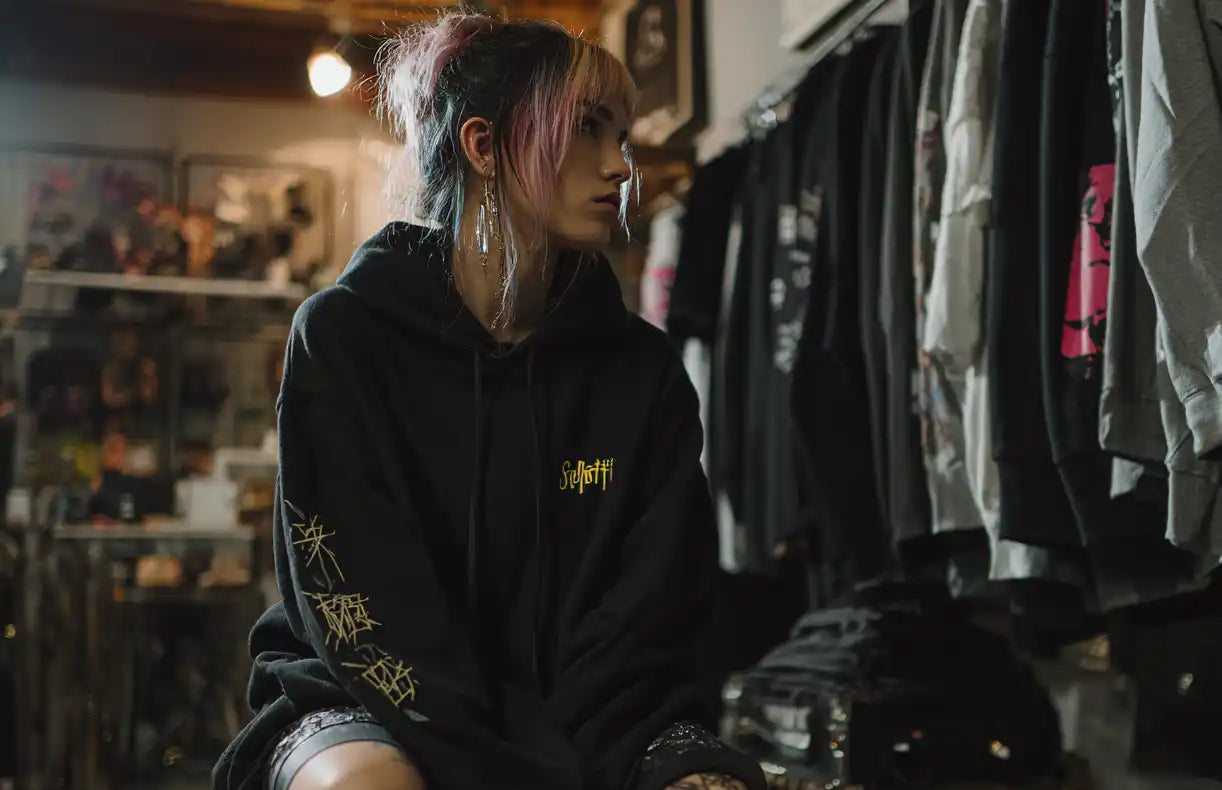
Trends & Designs in Modern Apparel
Oversized fits, streetwear influences, and activewear styles driving custom clothing production.
Explore Trends & Designs for Apparel Development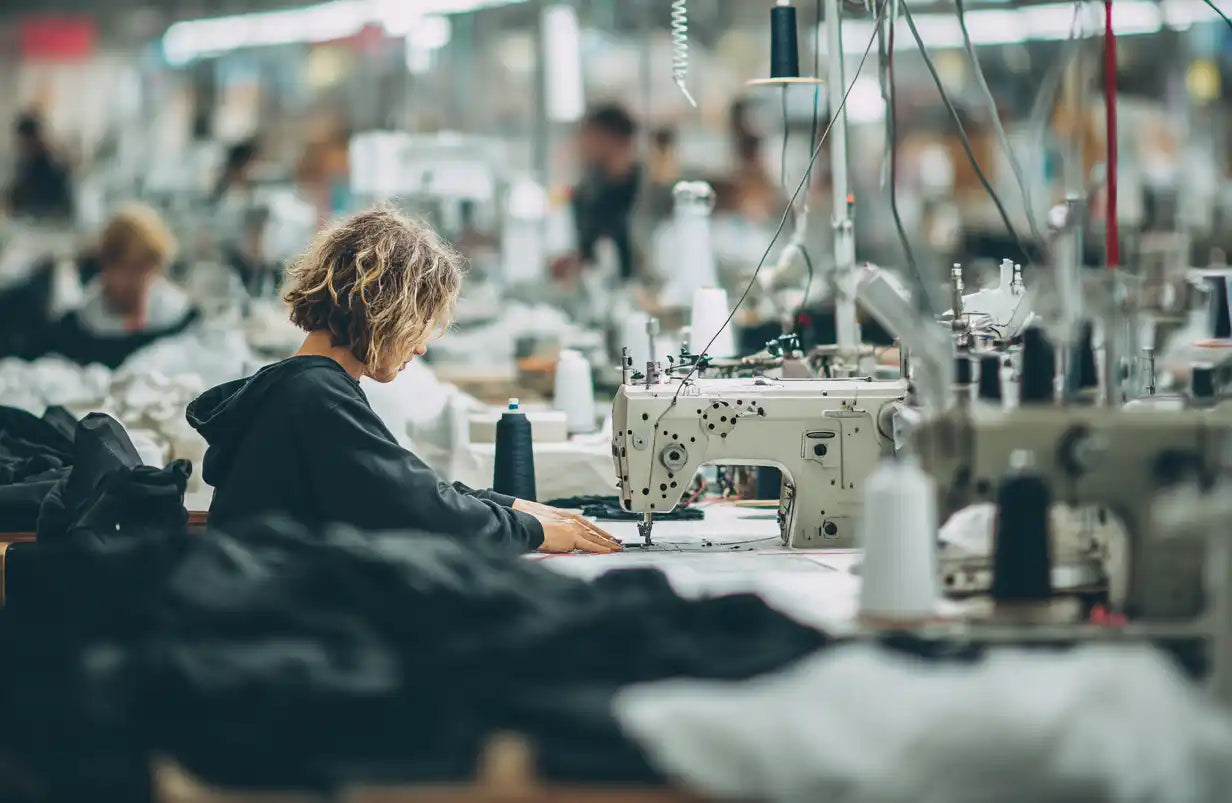
Sustainable & Ethical Clothing Production
OEKO-TEX® certified fabrics, organic cotton, and ethical apparel manufacturing in Portugal.
Understand Sustainable & Ethical Clothing Production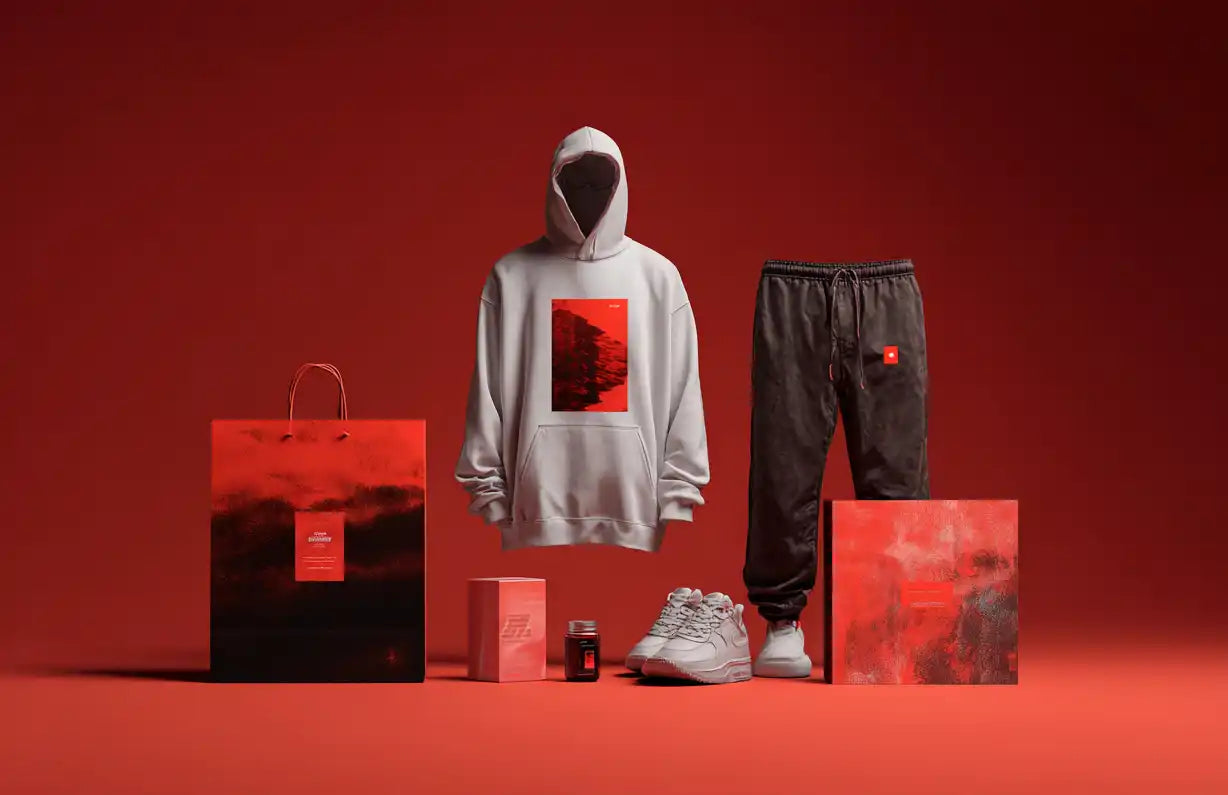
Essentials for Custom Clothing Production
Custom labels, packaging, and trims that elevate your apparel brand in production.
Explore Essentials for Custom Clothing Production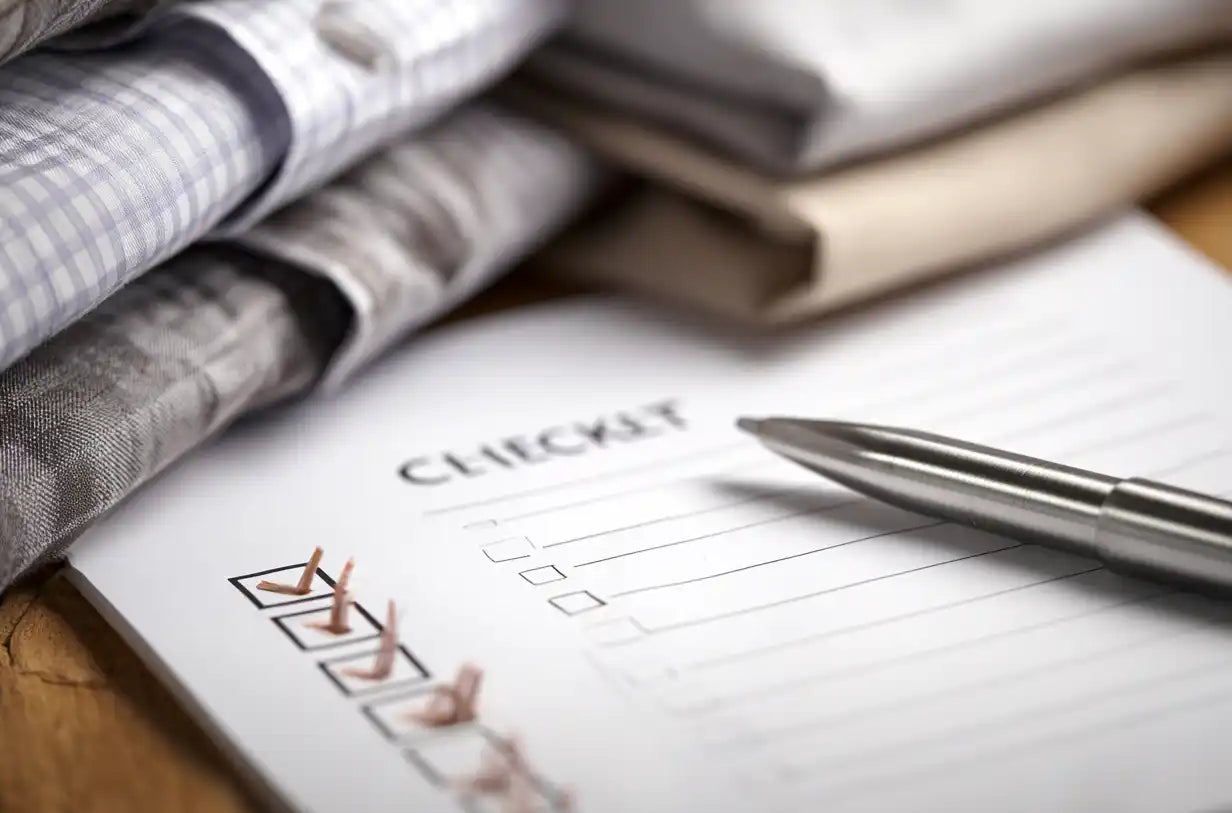
Resources for Custom Clothing Production
Startup guides, logistics support, and scaling strategies for apparel brands and wholesale clients.
Explore Resources for Custom Clothing Production
Clothing Manufacturing Glossary
Explore a complete glossary of clothing and garment manufacturing terms
The Complete Clothing Manufacturing Glossary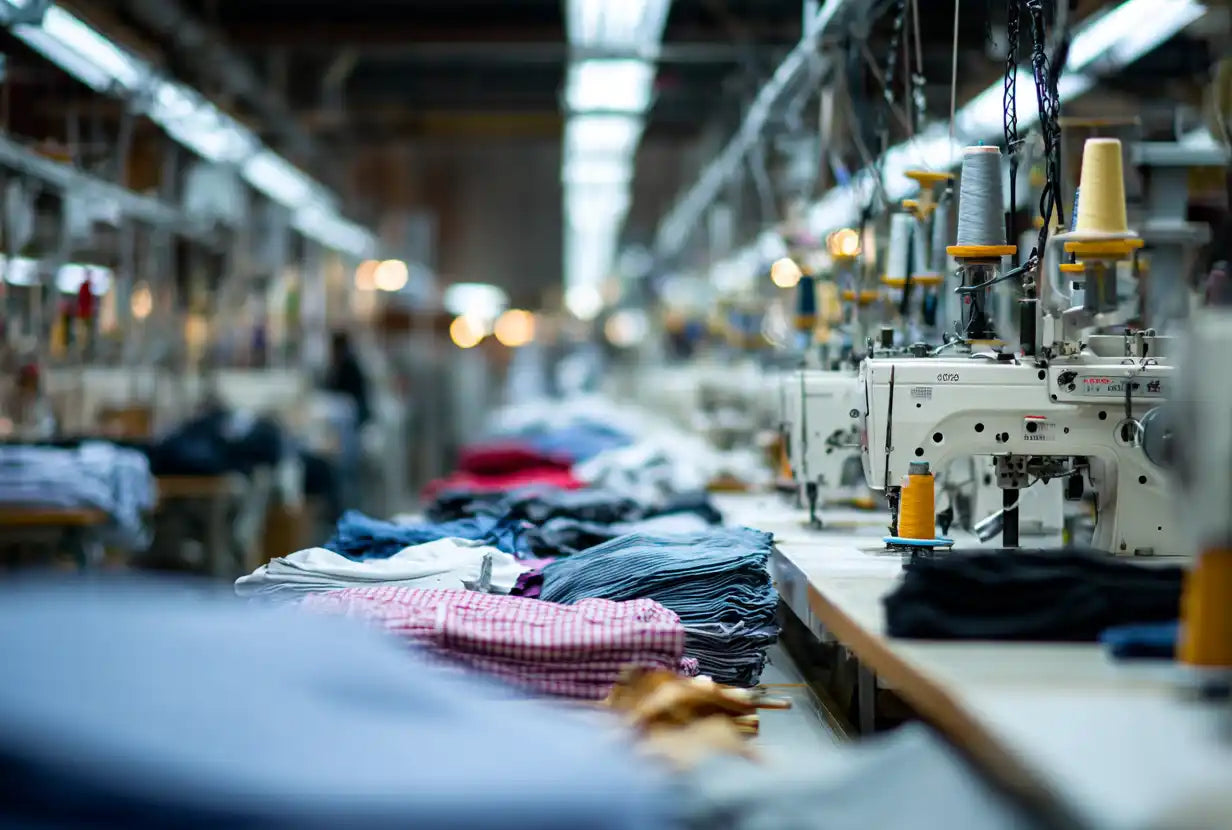
The Best Clothing Manufacturers
Explore global clothing manufacturers by country
Explore The Best Clothing Manufacturers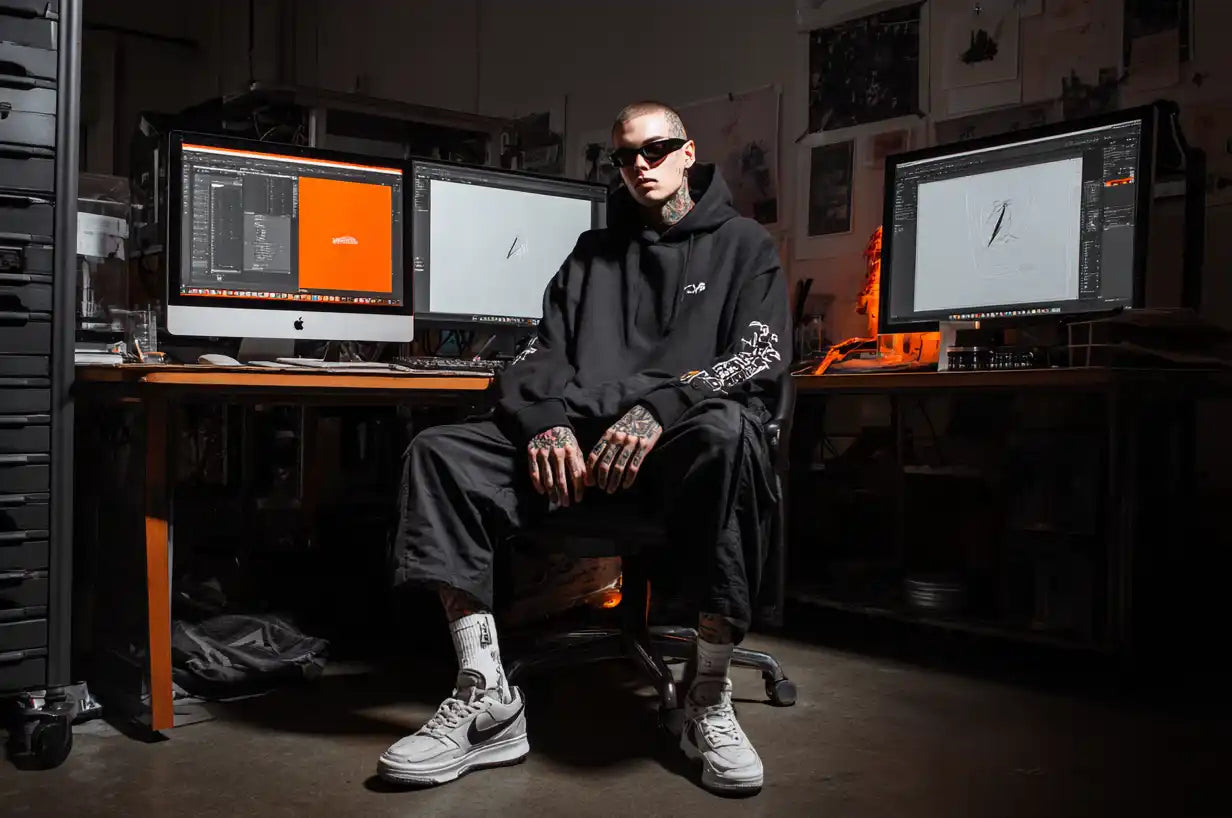
The Latest Clothing Industry Updates in 2025
Discover the latest news about important topics in the clothing industry in 2025,
Stay On Top Of Clothing Industry Updates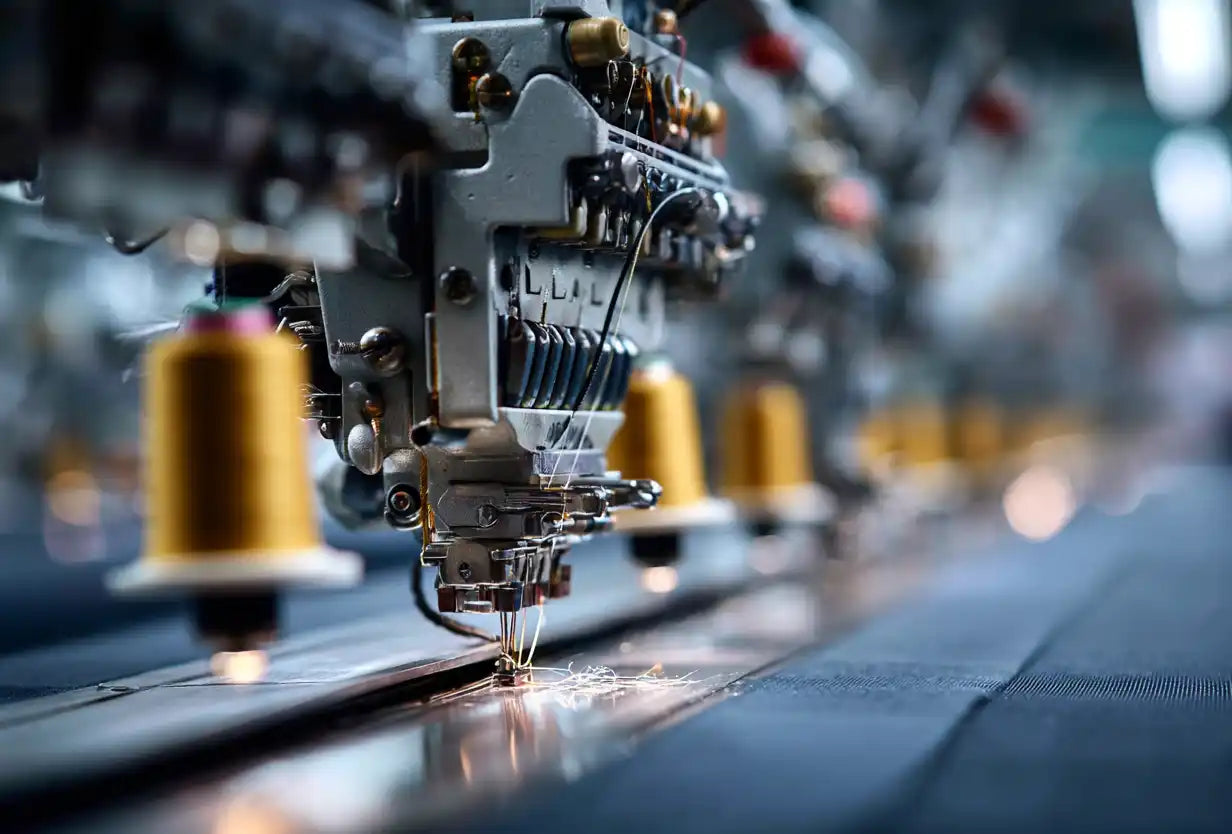
Worldwide Best Manufacturers of Clothes in 2026
Top clothing manufacturers worldwide organized by product type
Find The Worldwide Best Manufacturers of Clothes
